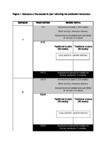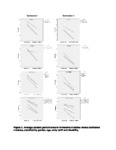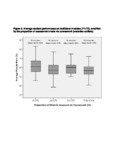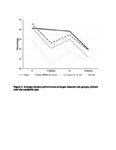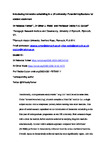Introducing immersive scheduling in a UK university: Potential implications for student attainment
| dc.contributor.author | Turner, R | |
| dc.contributor.author | Webb, O | |
| dc.contributor.author | Cotton, D | |
| dc.date.accessioned | 2021-03-04T09:48:09Z | |
| dc.date.issued | 2021-02-10 | |
| dc.identifier.issn | 0309-877X | |
| dc.identifier.issn | 1469-9486 | |
| dc.identifier.uri | http://hdl.handle.net/10026.1/16919 | |
| dc.description | 18 month embargo. | |
| dc.description.abstract |
Traditionally, undergraduates study several ‘long thin’ modules at the same time. Under ‘immersive scheduling’, students complete a ‘short fat’ module (i.e. a single subject studied over a compressed period), before moving onto other modules. This piece of social research capitalised on the introduction of immersive scheduling to the first year of all undergraduate programmes at one UK University. Both semesters began with a short fat module, before students switched to studying long thin modules simultaneously. A novel ‘within-subjects’ analysis compared how individuals (N > 3000) performed in immersively-delivered modules versus traditional modules. Overall, marks on immersively-delivered modules were significantly higher, with this pattern replicated across semesters and in various demographic subgroups. This real-world evaluation complements existing ‘between-subjects’ studies, where an identical module is delivered in immersive and traditional formats to separate cohorts. It offers further indications that immersive scheduling may be a beneficial pedagogic tool for enhancing student attainment. | |
| dc.format.extent | 1371-1384 | |
| dc.language | en | |
| dc.language.iso | en | |
| dc.publisher | Taylor & Francis (Routledge) | |
| dc.subject | Widening participation | |
| dc.subject | attainment | |
| dc.subject | inclusivity | |
| dc.subject | first year induction | |
| dc.title | Introducing immersive scheduling in a UK university: Potential implications for student attainment | |
| dc.type | journal-article | |
| dc.type | Article | |
| dc.type | Early Access | |
| plymouth.issue | 10 | |
| plymouth.volume | 45 | |
| plymouth.publication-status | Published | |
| plymouth.journal | Journal of Further and Higher Education | |
| dc.identifier.doi | 10.1080/0309877X.2021.1873252 | |
| plymouth.organisational-group | /Plymouth | |
| plymouth.organisational-group | /Plymouth/Faculty of Health | |
| plymouth.organisational-group | /Plymouth/PS - Library and Educational Development | |
| plymouth.organisational-group | /Plymouth/REF 2021 Researchers by UoA | |
| plymouth.organisational-group | /Plymouth/REF 2021 Researchers by UoA/UoA23 Education | |
| plymouth.organisational-group | /Plymouth/Users by role | |
| plymouth.organisational-group | /Plymouth/Users by role/Academics | |
| dcterms.dateAccepted | 2020-12-28 | |
| dc.rights.embargodate | 2022-8-10 | |
| dc.identifier.eissn | 1469-9486 | |
| dc.rights.embargoperiod | Not known | |
| rioxxterms.versionofrecord | 10.1080/0309877X.2021.1873252 | |
| rioxxterms.licenseref.uri | http://www.rioxx.net/licenses/all-rights-reserved | |
| rioxxterms.licenseref.startdate | 2021-02-10 | |
| rioxxterms.type | Journal Article/Review | |
| plymouth.funder | Institutional Accreditation Impact Evaluation::Advance HE |


